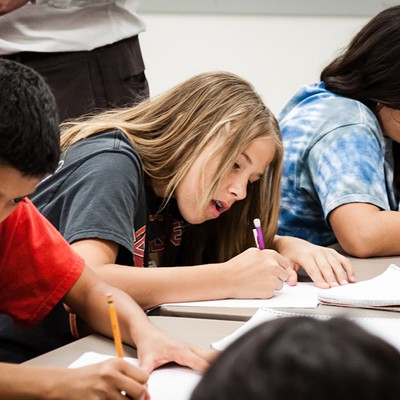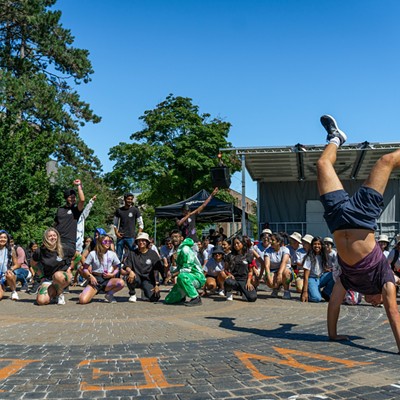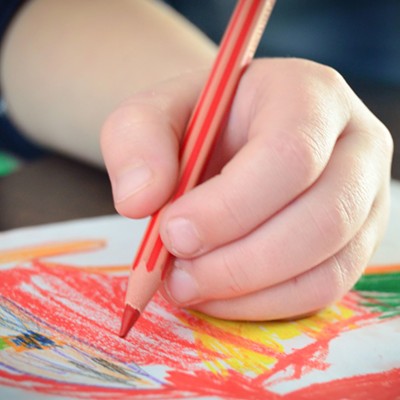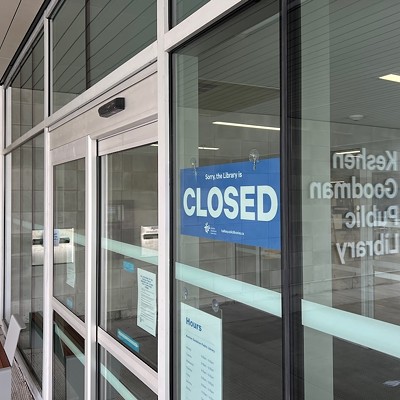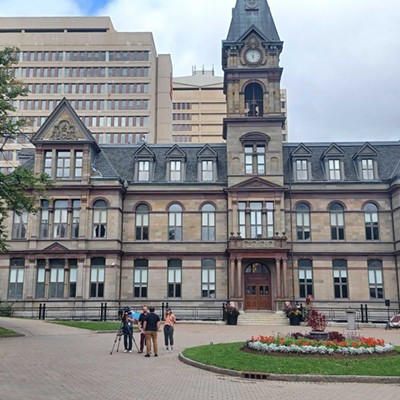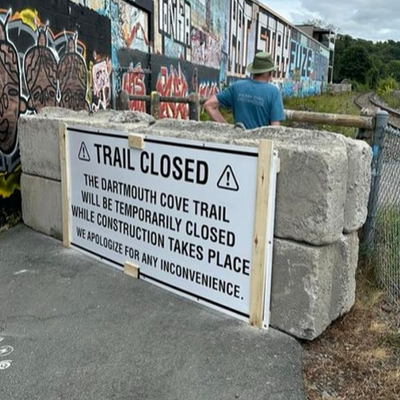Inside the Mi’kmaw Native Friendship Centre on Saturday, Sept. 30, a crowd of all ages wore orange and listened to stories from residential school survivors and their families. Saturday marked the third National Day for Truth and Reconciliation in Halifax and across Canada. The day’s event focused on healing through storytelling alongside cultural activities geared towards young people, including button making, beading and medicine pouch making.
Speakers shared stories of intergenerational trauma inflicted by the forced removal and deportation of Indigenous children to church-run and government-funded residential schools. They mentioned, too, the legacy of centralization in the province—a 1942 policy of the government’s Indian Affairs department to relocate Indigenous families to just two reserves: Eskasoni and Shubenacadie, known today as Sipekne’katik.
As Sept. 30 fell on a weekend, students across the province also wore orange “Every Child Matters” shirts at school on Friday, Sept. 29. Formerly known as Orange Shirt Day, a movement started by Phyllis Webstad, Truth and Reconciliation Day honours the survivors of residential schools and the many children who never returned home.
Lindsey Bunin is the communications officer for the Halifax Regional Centre for Education. In an email to The Coast, Bunin said that on Friday, Sept. 29, “National Day for Truth and Reconciliation was observed across HRCE in a variety of ways, including curriculum outcomes, integrated learning projects, fine arts, school-wide assemblies, special ceremonies and more…with an age-appropriate lens in classrooms.”
Heading into the weekend, the provincial minister of L’lnu affairs, Trevor Boudreau, encouraged all Nova Scotians to “find ways to recognize [National Truth and Reconciliation Day] and the path of reconciliation we walk together.” In his statement, Boudreau asked Nova Scotians to “take an active role and acknowledge the legacy of residential schools…wear orange on Friday and Saturday and attend an event in your area [and to] make time to learn from the stories of residential school survivors and learn about our treaty relationship.”
On either end of the weekend, Halifax deputy mayor Sam Austin and mayor Mike Savage hosted the Mi’kmaw Grand Council flag raising ceremony and the Peace and Friendship Treaty proclamation on Friday, Sept. 29 and Monday, Oct. 2 at City Hall. Plus City Hall itself was lit orange all weekend long.
And HRCE public schools and regulated child care were closed Oct. 2 in observance of Truth and Reconciliation Day.
“We encourage students and staff to take time to reflect on the meaning of truth and reconciliation, and honour those who attended Indian Residential Schools and the intergenerational impacts of trauma on their families,” said Bunin. “The process of learning is an ongoing one, throughout Mi’kmaq History Month, and beyond.” Treaty Day, recognized on Sunday, Oct. 1, marked the beginning of Mi'kmaw History Month.
Mary Hatfield, Roger Lewis, Michael R. Denny and Dorene Bernard share their experiences as Survivors and descendants of Survivors of Shubenacadie Indian Residential School. This video was developed as a collaboration between Mi’kmawey Debert Cultural Centre and Parks Canada. The former Shubenacadie Indian Residential School was designated as a national historic site in 2020.
A spokesperson for the Department of Education and Early Childhood Development—the EECD—said in an email to The Coast, “Having a day off allowed students in Nova Scotia the opportunity to attend events hosted by Mi’kmaw Communities. Students should have an opportunity to hear from an authentic first voice and have time to listen, discuss, and reflect on the messages shared.”
Said the EECD spokesperson, “In the days leading up to September 30, schools throughout the province remembered and honoured survivors and committed to learning the truth about residential schools and to living in ways that promote reconciliation.
“Grade-level teaching packets are available to help teachers support their students’ learning using resources and teaching ideas developed collectively by teachers from Mi’kmaw Community schools and from provincial schools.
“These resources are available all year long, which reinforces our belief that education does not take place on one day only. Learning is strengthened when a focus on Truth and Reconciliation is integrated throughout the school year.”



